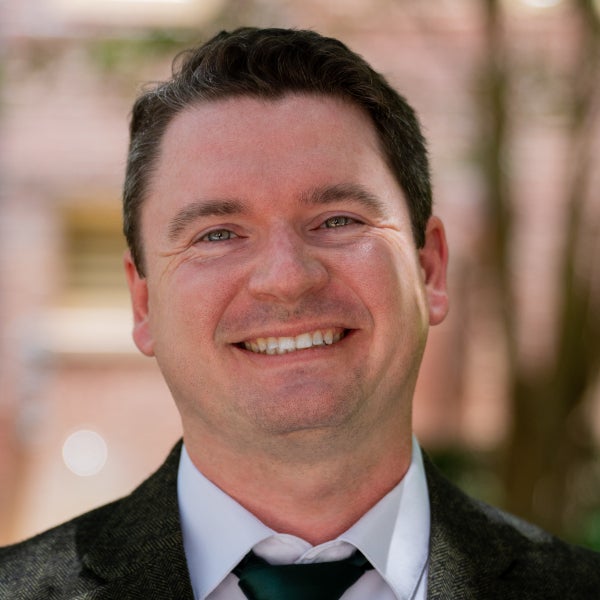
Michael Furman earned his Ph.D. in Ancient History from the University of St Andrews. Originally from Washington state, he arrived at FSU in 2018 where he taught in the Department of Classics for four years. A Greek Historian by training, his research focuses on the history of Boeotia and its most famous city, Thebes, in the fourth century B.C. Dr. Furman has been fortunate enough to live the historian’s dream and excavate the city he studies, serving as a Supervisor on the Thebes Excavation from 2011-2016. Teaching in the Honors Program has allowed him to take the study of the ancient world in exciting, modern directions by designing courses that demonstrate the relevance of the ancient world to today whether it be through the pseudoarchaeology we see on TV, the influence of Greece and Rome on the Founding Fathers, or the imagined landscapes of Assassin’s Creed.
In addition to his teaching and research, Dr. Furman is the Associate Director of the Honors Program. In this role, his primary responsibilities relate to curriculum and faculty development. This includes creating program-wide teaching policies, recruiting and mentoring faculty to teach Honors courses, and chairing faculty hiring searches. Since 2023, he has also overseen the expansion of learning modalities within the Honors Program with online Honors Signature Courses launching in Summer 2024 and the first Honors Signature international program, Honors Global Experiences – London which debuted in Summer 2025.
When he is not working, Dr. Furman enjoys playing golf and is a proud Star Wars nerd, references to which frequently appear in his teaching.
Honors Signature Courses
- IDH3114: Appropriating the Past: The Use and Abuse of the Ancient World in Modern Society
- IDH3126: Public Scholarship for Honors: Expertise and Media in Modern America
- IDH3420: Alienating History: Ancient Aliens, Pseudoarchaeology, and Historical Inquiry
- IDH3421: Historic Landscapes, Imagined Worlds: Ancient History Through Gaming
- IDH3450: In the Footsteps of the Ancients: Roman Britain
